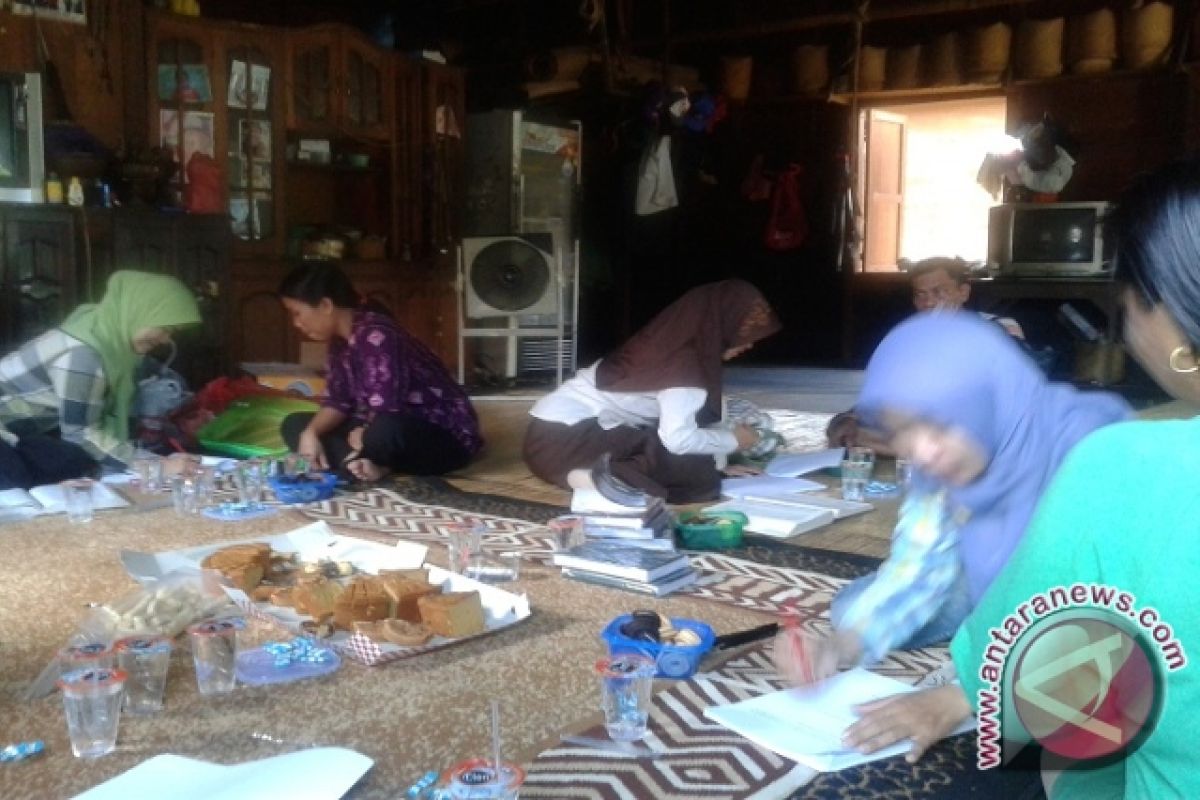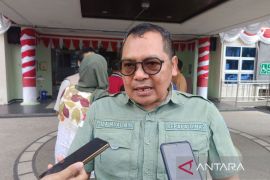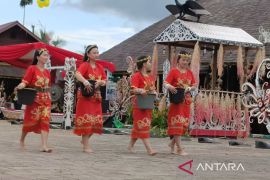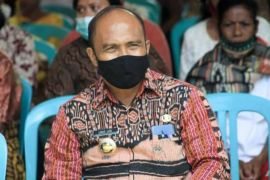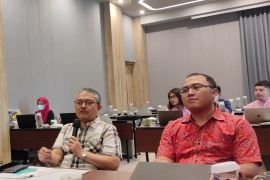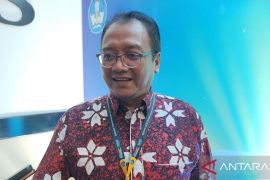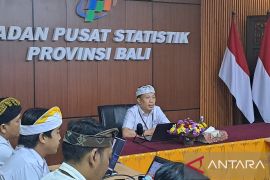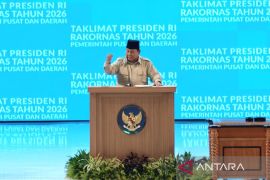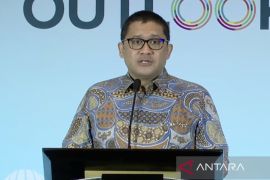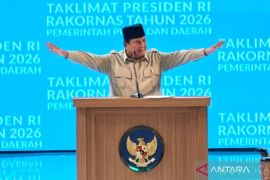In English, it translated to “Let’s go, we will see dolphins, (if we are late) we will not catch up with the sun.” However, there is a catch, as what Alimin uttered is not in Indonesian but rather in the Kota Bangun dialect of the Kutai language.
While some words in Kutai are similar to Indonesian, some distinctions found in Alimin’s utterance are ‘etam’, Kutai for ‘kita’ (we) and ‘kendiya’ for ‘nanti’ (later). In essence, most Indonesian speakers will understand most of what he said, yet they would need to clarify the meaning of these two words with him.
Alimin’s words will be a bit confusing for non-Kalimantan Indonesian speakers due to their distinct vocabulary, yet residents accustomed to local languages -- Dayak, Paser, and Kutai languages -- will immediately know that Alimin speaks the Kota Bangun dialect of Kutai language.
Alimin’s case demonstrates that language, as a system of communication comprising words, is part of the identity of an individual that will make them distinct from others.
Unfortunately, the Kota Bangun dialect of the Kutai language is among several languages in East Kalimantan that are endangered due to cultural blending, decreasing number of native speakers, and limited language distribution.
According to the Ministry of Education, Culture, Research, and Technology, a total of 718 languages are spoken nationwide, of which 25 languages are endangered, six languages are in critical condition, and 11 languages have been declared extinct.
Related news: Regional language revitalization to prevent language death: Minister
Language revitalisation
Language revitalisation has become more urgent to rescue endangered languages from the threat of extinction, according to the House of Representatives (DPR RI) Commission X legislator representing the East Kalimantan constituency Hetifah Sjaifudian.
Sjaifudian highlighted that the arrival of around 500 thousand residents that will reside in the new capital Nusantara in future would become a threat to the local cultures and languages if the matter were not addressed properly.
To prevent vulnerable languages from extinction, some 38 languages considered endangered nationwide have been designated as part of the Ministry of Education, Culture, Research, and Technology’s cultural revitalisation programme in 2022.
Three East Kalimantan languages that will be revitalised under the programme are Kenyah (Dayak language family) language, Paser language, and Kota Bangun dialect of the Kutai language.
Sjaifudian expressed relief over the ministry’s programme that will help to revitalise endangered languages that she has fought for. She advocates for the introduction of local language classes at local schools to teach the languages.
Regional authorities are now obligated to introduce local languages as part of the curriculum in schools to ensure language survival that becomes part of the regional culture and symbol that identifies its speakers.
Introducing local languages in schools is also essential to alleviate the effects of the relocation of the national capital to Nusantara on social and linguistic composition in the province.
Of all regions where languages tagged for the ministry’s programme are spoken, Paser District’s Education Office is the first to obligate Paser language to be introduced in schools as part of the school curriculum. Educational authorities in other East Kalimantan districts are expected to follow suit.
Regional authorities are also expected to involve native speakers through cross-sector and cross-authority support to ensure the programme’s progress.
Related news: Language Agency to revitalize five regional languages in NTT
Regulatory support
Moreover, East Kalimantan Language Office Head Anang Santosa stated that the central government had already provided some legal basis for the conservation and protection of local languages.
Some legal basis on the matter is Government Regulation No. 57 of 2014 on the Development and Protection of Languages and Literature and Home Affairs Ministry Regulation No. 40 of 2017 on Guide for Regional Heads to Develop and Conserve National and Regional Languages.
To address the endangered language issues and align with the ministry’s programme, the East Kalimantan authority is currently devising a regulation on the promotion of local languages that will provide a legal basis for a more thorough implementation of local languages in the region.
In line with the provincial authority, the East Kalimantan Language Office is also drafting a regulation to protect the local language from the intrusion of other cultures and maintain the development and harmony between the national language, Indonesian, and local languages after the national capital is relocated to East Kalimantan.
Sjaifudian lauded the provincial authorities' prompt follow up after the local languages have been included in the ministry’s language revitalisation programme. Regulations devised by the central government must be implemented by regional authorities, she stressed.
Regional authorities must assist the central government in implementing articles of Law No. 24 of 2009 on National Flag, Language, Emblem, and Anthem, particularly article 42 of the law that enumerated the government’s responsibility to protect languages and literature.
The Ministry of Education, Culture, Research, and Technology’s cultural revitalisation programme in 2022 in East Kalimantan will offer the right momentum to bolster the residents’ pride in their mother language, as language is the identity of the people and the nation.
Related news: Indonesia has 653 native languages: Government
Editor: Suharto
Copyright © ANTARA 2022
